African Photo Safari: The Wild Through Your Lens
February 19, 2024
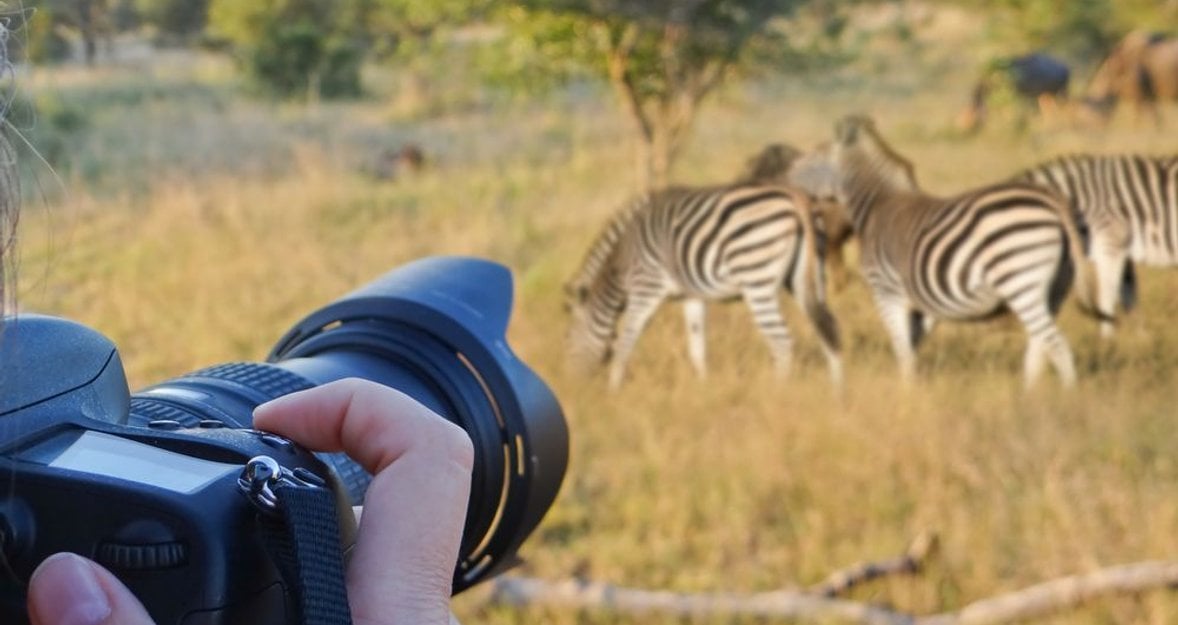
Take a trip with us through the excitement of photographing an African safari, capturing everything from lions at dawn to elephants at waterholes. It's a must-read for anyone who dreams of turning their safari sights into stunning photos that tell the tales of the wild!
Going on an African safari is something else, really! You can walk through the vast open Serengeti Plain or through the dense Congolese jungle. It’s a chance to see the world in a way you’ve never seen before!
We advise you to have your camera handy to capture these incredible moments! Picture a lion staring back at you or a squirrel roaming the landscape. These are not just regular photos—they are your own personal stories of adventure and discovery!
Photographing on safari allows you to keep a piece of that adventure with you forever. Every photo has its own story, like seeing a group of elephants at sunrise or watching a storm roar over the plains, and this is what makes African safari photography so special. It’s not just tourists; you are the storyteller, telling everyone about the beauty of these places and animals!
Exclusive Tools of Endless Possibilities in One AI Editor
EXPLORE NOW!Getting Ready for Your Safari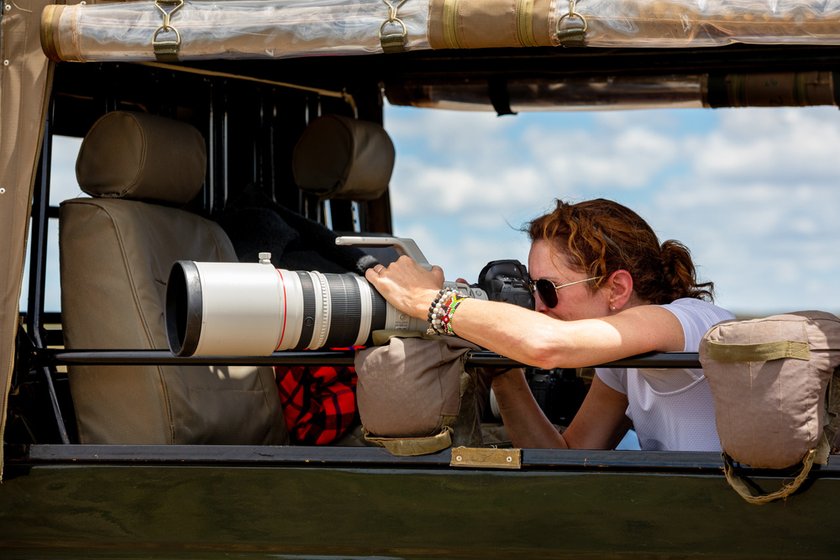
Planning a trip to see Africa's wildlife is pretty exciting. You're going to see animals and places that most people only dream about. But first, you've got some planning to do!
Choosing Where to Go
We picked the best African photo safari tours for our readers! Check them out!
1. Kruger National Park, South Africa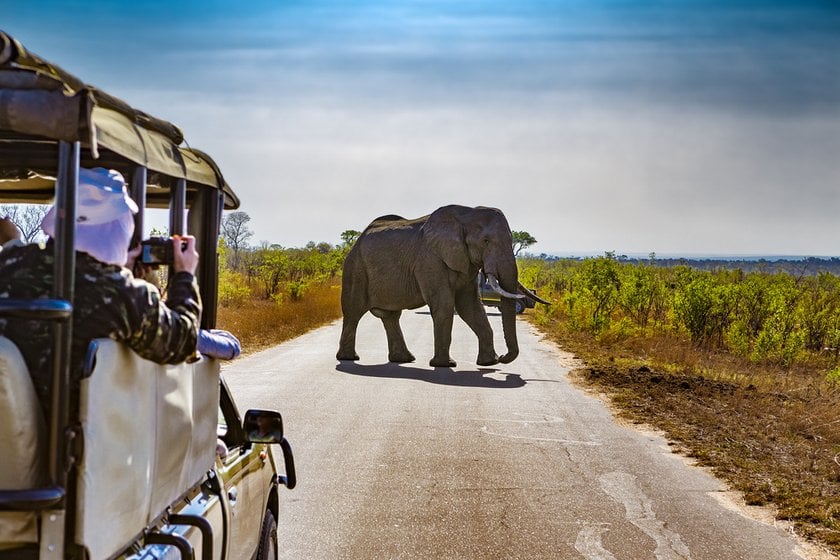
Kruger National Park is one of Africa's largest game reserves! It stretches over nearly 20,000 square kilometers. There, you have the chance to see the Big Five (lions, elephants, leopards, rhinos, and buffaloes) up close. The park is diverse, and it's home to over 500 bird species and countless other animals. Over 1,000 kilometers of roads let you lead your own safari, driving by yourself or with a guide through different landscapes!
2. Serengeti National Park & Ngorongoro Crater, Tanzania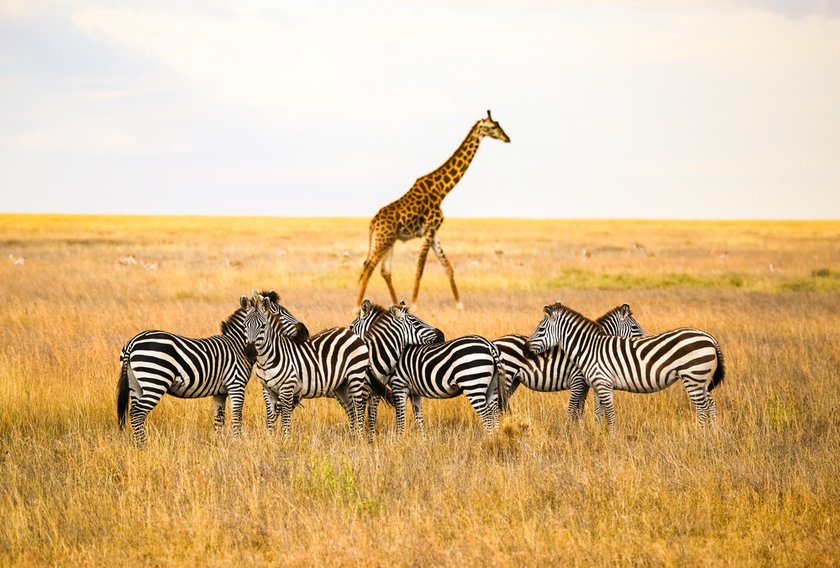
The Serengeti stretches over 14,750 square kilometers, and it offers a front-row seat to the Great Migration. This annual event sees over 1.5 million wildebeest and thousands of zebras and gazelles trekking across the plains in search of fresh pasture.
The Ngorongoro Crater, located close by, forms a natural sanctuary for wildlife, spanning about 260 square kilometers and hosting over 25,000 large animals. It's like a small version of the whole African safari experience, with nearly all kinds of animals you can find in the area, including lots of lions and the hard-to-find black rhino.
3. Masai Mara National Park, Kenya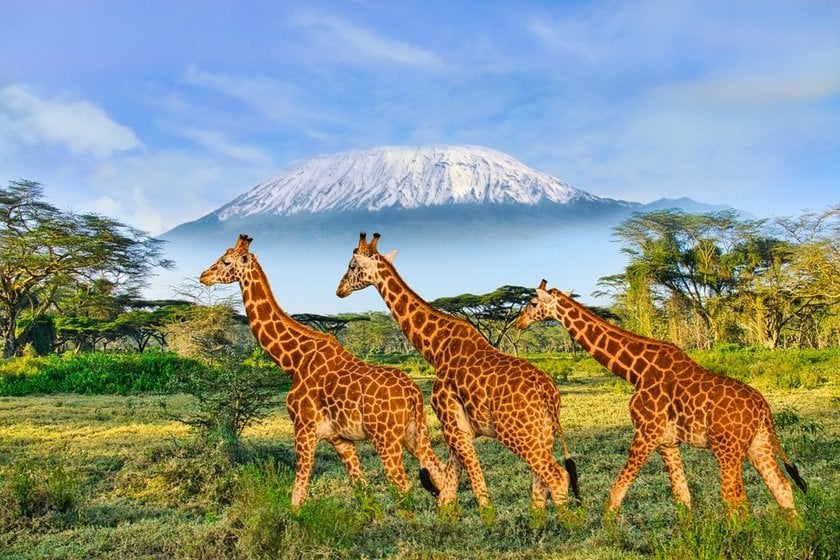
The Masai Mara covers around 1,510 square kilometers, acting as a continuation of the Serengeti's vast ecosystem. Its highlight is the dramatic Mara River crossings during the Great Migration, a spectacle that attracts visitors from around the world. The park's open grasslands offer panoramic views and are also prime spots for observing the densest concentration of lions in the world!
4. Bwindi Impenetrable Forest, Uganda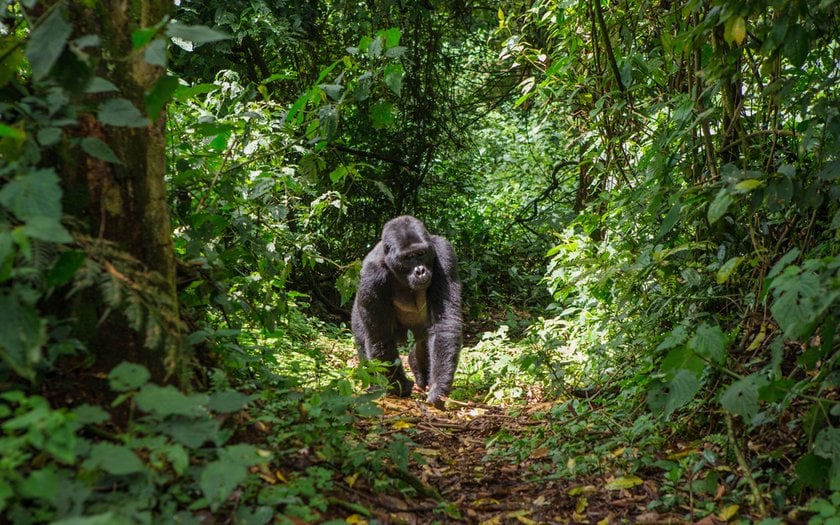
Bwindi is a primeval forest that covers about 321 square kilometers and is renowned for its mountain gorilla population. For nearly half of the world's mountain gorillas — for over 400 individuals, it is home. Walking through Bwindi's tough landscape lets you see these big, gentle animals where they live, along with more than 350 kinds of birds and 120 different mammals, including a few types of primates.
5. Etosha National Park, Namibia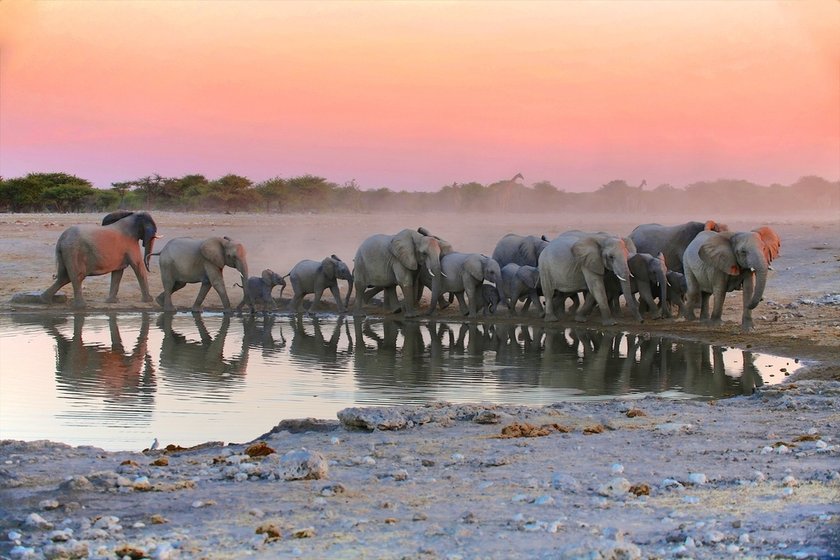
Etosha's special feature is its salt pan, which is so vast that it can be seen from space! Also, park's waterholes draw crowds, especially during the dry season. Spanning 22,270 square kilometers, Etosha hosts a large variety of animals, including the endangered black rhino and the endemic black-faced impala. Its unique geography makes it one of the most accessible places for wildlife viewing, with animals congregating at the waterholes that pepper the otherwise arid landscape!
What to Pack
Let's make a list of what you should bring with you!
Camera Gear: Make sure you set up your camera and that you have extra batteries and memory cards. Having different lenses is a plus as well!
Binoculars: Handy for seeing animals before you even get close.
The Right Clothes: Bring layers since it can be cool in the morning and hot later. And, of course, don't forget a hat and sunscreen!
Comfortable Shoes: Since you'll be walking a lot, good shoes are important.
Think about what you're excited to see and the kinds of photos you want to take, and then choose your safari spot! Each place offers its own unique experience, whether that's gorillas in the jungle or lions on the grasslands. Get ready for an adventure you'll never forget!
Taking Great Photos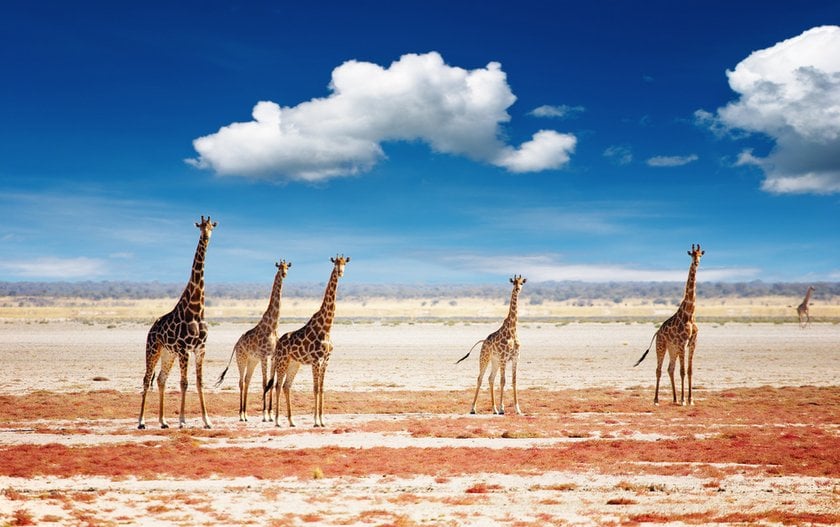
Heading out on an African safari lets you see those incredible animals and landscapes up close, the ones you've only ever seen in photos or on TV before. To get the best shots, aim for early morning or late afternoon. That's when the sunlight is at its most stunning, casting everything in a soft, golden glow without being too harsh. With this kind of light, everything is beautiful. Plus, this is when most animals are up and walking, so you’re more likely to get good photos!
But capturing these moments means being prepared. Don’t wait for animals to take out your camera and put it away. You need to be familiar with your camera so you can find something cool and snap a picture quickly. And when taking pictures, try to focus on the animal’s eyes. This makes the image feel alive, like you are actually there!
Capture Every Detail with AI-Powered Focus Stacking
Discover it NowIt's important to remember that you're in the animals' home. This means staying in a safe distance and not trying to get too close just for a photo. Use your camera zoom if you need to. And try to stay calm and go slow so you don’t scare them. Your guide will help you learn how to do this effectively. They know where to go and how to get good pictures without disturbing the animals.
Photographing on safari is about more than just getting the perfect picture. It’s about seeing these amazing animals and places with your own eyes and then being able to share that with others!
Connecting with Nature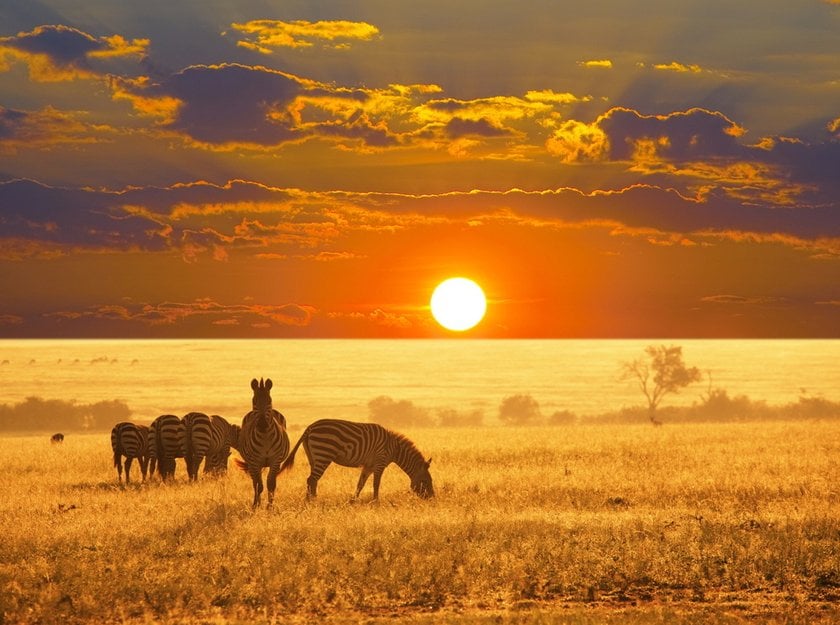
Going on an African photographic safaris changes you. It’s when everything else falls away, and it’s just you and the wild. Like when you catch the eye of a lion, and everything is quiet, or you look at an elephant at dusk, and you feel something change inside you. Those moments stick with you, deep down, showing you the raw beauty of nature and why it's so important to protect it.
Taking pictures on these safaris can actually help with conservation. When people see your photos, they start to care more about these animals and places. Your pictures tell a story that can make others want to save these areas and their inhabitants.
When you come back, sharing photos and stories is key. This can help others feel connected to these remote places and creatures, possibly motivating them to help protect them!
Editing Your Wildlife Photography
When you're back from your safari adventure, sorting through your wildlife snaps, you might notice some photos need a little extra work to really shine. That's where Luminar Neo steps in, particularly with its knack for wildlife photography editing. This software helps you tweak those shots, ensuring the morning light hits the lion's mane just right or the colors of the bird's feathers stand out. It's about making each animal look as vibrant and alive in your photos as they did in the wild!
AI image stitching is also a game-changer for creating panoramas from those expansive landscapes you've captured. It effortlessly combines multiple shots into one wide image, letting you showcase vast savannas or groups of animals in their entirety.
Then, there's the task of refining the landscapes you've witnessed. Maybe the skies weren't as clear, or the lighting was not as perfect as you remember. With Luminar Neo's image landscape maker, you can adjust those scenes to match your memories. Want to add a dramatic sunset or create a misty morning effect? This feature transforms your landscape photos into the stunning backdrops of your adventures, ensuring the scenery impresses as much as the wildlife.
These features, from wildlife photography editing to AI image stitching and landscape making, are designed to enhance your safari photos. They ensure that every detail, from the tiniest insect to the widest plains, is just as you remember, turning your photos into vivid stories waiting to be shared!
Conclusion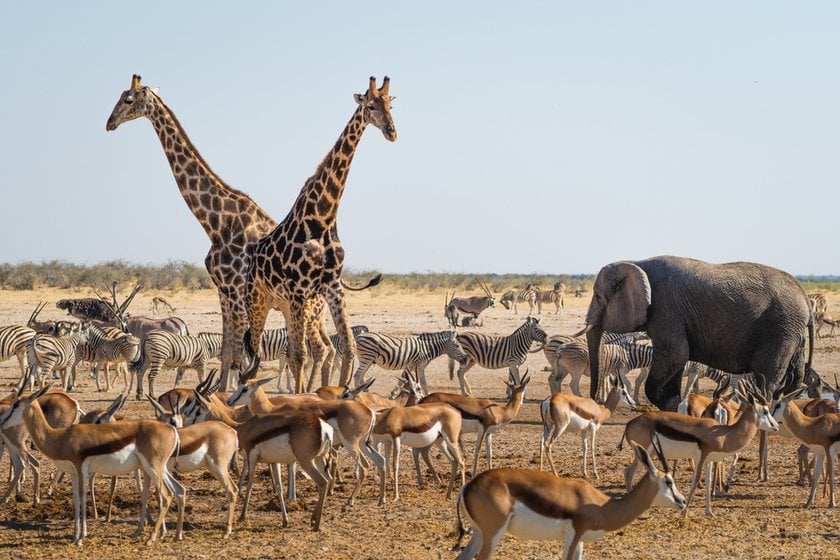
Wrapping up our journey through African photo safaris, from the planning stages to the unforgettable moments in the wild, and finally to preserving those memories through editing, it's clear this experience is more than just a trip — it's a profound way to connect with nature and share its wonders. With tools like Luminar Neo enhancing your photographs, each image becomes a doorway for others to witness the awe-inspiring beauty of Africa.
Through your lens, you're not just a visitor but a storyteller, bringing the wild into hearts and homes around the world.
For those interested in delving deeper into capturing the essence of the wild, check out our previous post on the best cameras for wildlife photography.
Best camera for wildlife photography: Review 2025
Learn more













